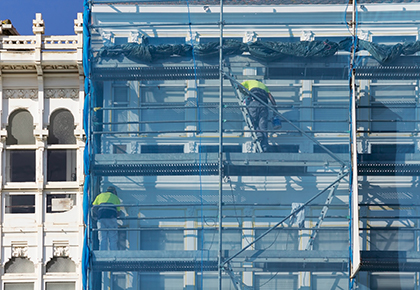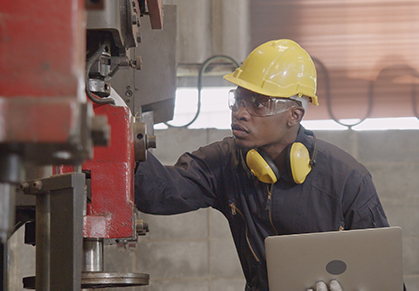-
Slow and Steady: 5 Surprising Benefits of Raising Your Dues
It’s that time of year again – budget season is upon us. You know the things to consider when creating your budget, but what drives your process? Are you focused on achieving a particular vision for your community? Avoiding conflict in the community? Solely looking to avoid increasing dues/contributions? -
Creating Positive Interactions Between Condo Board Members
Everyone brings their own assumptions and methods of completing tasks to each group to which they belong. Condominium board members are no different. While the diversity of the group can be its greatest strength, it also can create difficulties between the individual members. It is important to structure condo board meetings in a way that creates a professional and positive working relationship. Here are some tips to help boards achieve this. -
Defining Condo Corporation Leaders’ Rights and Responsibilities to Create Better Communities
When your condominium board members (and your property management team, if you are working with a professional management company) have a thorough understanding of their rights and responsibilities, it helps to create a more inviting community. Your community is more likely to be effectively managed and well-maintained, which leads to happier residents. -
Four Steps to Healthy Finances
Keeping your condominium corporation’s finances healthy is much like keeping yourself physically fit. The key is to make smart choices and avoid over-indulgence. -
Preventative & Predictive Maintenance are Critical to Your Replacement Reserves
Reserve Fund Studies are based on the assumption that components will reach their maximum useful life. However, if a preventative maintenance plan doesn’t accompany your reserve study, it’s highly unlikely some components will ever reach their maximum useful life. -
Preventative Roof Maintenance is Crucial to the Sustainability and Longevity of Your Roof
We can all agree there are many important elements to a housing structure, but your roof is probably the most important. Changing temperatures, snow accumulation, large amounts of rain, ice dams and high winds can all cause major damage to condominiums, townhomes and single-family homes. These harsh weather conditions can create all sorts of problems, from minor leaks to major cave-ins that can cost a condominium corporation thousands to repair. -
Seven Tips for Preparing an Effective Annual Budget
Proper condominium management depends upon the annual budget for both short- and long-term financial planning. It’s important to follow some guidelines to ensure the success of the community and protect the investment of the owners. -
Smart Financial Planning
Safeguarding a condominium corporation’s operating and reserve funds is one of the main fiduciary duties of all board members, not just the treasurer. This means that boards must protect the financial interests of the corporation and its members by making sure all funds are properly managed, invested and protected. -
What If Our Manager Leaves? How to Handle HOA Staff Changes
Learn how to effectively manage HOA staff and manager changes. -
What If Our Manager Leaves? How to Handle HOA Staff Changes
Learn how to effectively manage HOA staff and manager changes. -
Florida HOA Laws 2020
Learn more about which Florida HOA laws passed in 2020, and how these new bills will affect your community. -
Florida Phase 3 Guidlines for HOAs and Condos
Get the latest Florida phase 3 property management guidelines to ensure your association is compliant. -
What If Our Manager Leaves? How to Handle HOA Staff Changes
Learn how to effectively manage HOA staff and manager changes. -
Condo Capital Improvements: Lending Solutions for Condominium and Co-op Boards
FirstService Residential and FirstService Financial work in tandem to help our clients successfully finance capital improvement projects and save money without compromising quality of service. -
Local Law 152: Updated Requirements for Boards and Buildings
Is your building prepared for Local Law 152 gas piping inspections? FirstService Residential recommends getting ahead of schedule to avoid unforeseen deficiencies and costly fines. -

FISP (Local Law 11) - Understanding Cycle 9 Requirements in NYC
FirstService Residential has invested substantial resources to facilitate each of our managed properties with facade inspections and is here to help you navigate the many intricacies of FISP. -
Don’t Be the HOA Bad Guy: 4 Proven Policy Enforcement Tips
Enforcing HOA policies is nobody’s cup of tea, but having good policy enforcement in place helps improve the resident experience and elevates your reputation. Follow these 4 principles for healthy policy enforcement: -
Reserve Fund? Special Assessment? Loan? 3 Ways to Fund Capital Improvements
Great capital improvements improve property values. Read on to see the three ways to pay for them and the pros and cons. -

Automating Compliance & Inspections for Multifamily Buildings in NYC
Robust automation software can help boards and building owners in New York City satisfy local law compliance deadlines and inspection cycles. -

5 Things to Know About Adequate Staffing
Does your homeowners association have adequate staff for the services that you provide? Learn how to staff your community effectively. -

New York’s Climate Mobilization Act | Frequently Asked Questions
FirstService Residential helps condo and co-op boards navigate CMA compliance, avoid costly fines and identify incentive programs that reduce the cost of building upgrades. -

Local Law 97 Updates: Building Energy Grades & Emissions Compliance
Local Law 97 impacts roughly 50,000 buildings across the city, a majority of which are multifamily residential properties. -

Residential EV Charging Stations: Benefits & Incentives for Multifamily Buildings
FirstService Residential recommends that all boards and building owners consider the installation of EV charging stations and incentives available through NYSERDA and ConEd. -

Understanding co-op and condo reserve funds
With an effective reserve-fund strategy, boards can properly plan for unplanned equipment replacements and repairs to building systems and facilities.